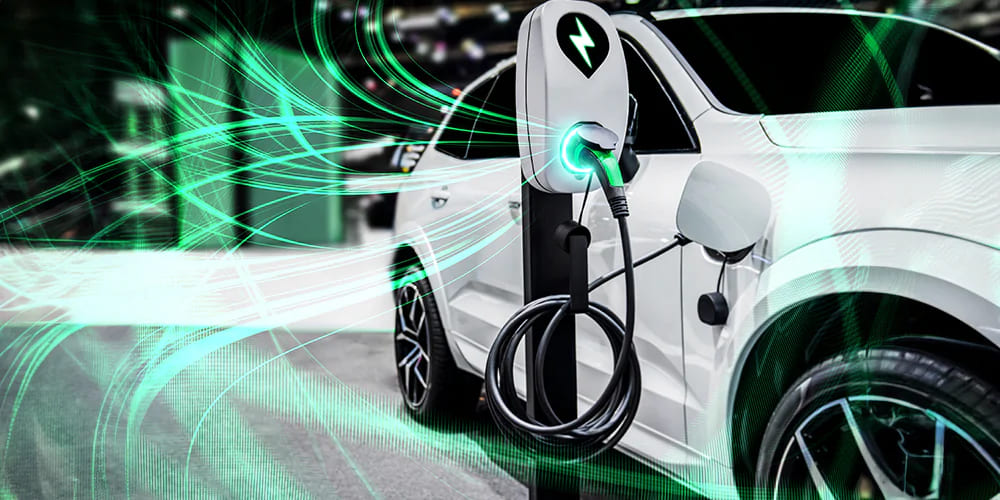Electric Vehicle Jobs and Skill Gap – India’s Auto Revolution

India has set its sights high on the automotive industry, aiming to double its size to INR 15 Lakh Cr by the close of 2024. The anticipated expansion of the India Passenger Car Market indicates a growth from USD 41.60 billion in 2023 to USD 67.81 billion by 2028, reflecting a compound annual growth rate (CAGR) of 10.27% throughout the forecast period (2023-2028). In particular, small and midsized cars dominate the passenger car segment. As the automotive industry gears up for this growth, the surge in Electric Vehicle Jobs & skill development in India becomes a pivotal aspect, creating new opportunities in tandem with the sector’s expansion.
The Electric Vehicle (EV) sector in India is poised for remarkable growth, as indicated by the EV-Ready India dashboard’s projected 45.5% compound annual Growth Rate (CAGR) in electric vehicle sales between 2022 and 2030. This surge is expected to catapult electric two-wheeler (E2W) sales from 6,90,550 in 2022 to an impressive 1,39,36,691 by 2030, outpacing several international counterparts.
In a significant accomplishment, India has outpaced the USA, Mexico, Canada, and various European nations, witnessing a 40% increase in automotive industry workers possessing at least one EV-related skill over the past five years, according to the Global Green Skills Report 2023.
EV Employment Boom
The Ministry of Skill Development and Entrepreneurship anticipates that the electric vehicle companies in India are going to generate one crore direct jobs by 2030, with an additional five crore indirect Electric Vehicle jobs. This surge in employment will necessitate a focus on technical and specialised skills to meet the escalating demand. While office roles will increasingly require expertise in artificial intelligence, analytics, and app development, the manufacturing sector will continue to rely on a steady supply of blue-collar workers.
Challenges: Skill Gap in the EV Industry
India’s burgeoning youth population, comprising over 65% of individuals under 35 years old, holds the potential to position the country as a global powerhouse and the skill capital of the world. This dynamic workforce, primarily composed of Gen Z and millennials, can drive India’s transition into the digital age.
Despite this potential, there are significant concerns regarding the existing skill gap in the workforce. One industry grappling with a notable challenge is the electric vehicle (EV) sector, which is hindered by a shortage of technicians and engineers trained in EV charging infrastructure. The specialised skill set required for the installation, maintenance, and troubleshooting of EV charging stations is currently in short supply. Additionally, there is a high demand for professionals with expertise in customer service and technical support tailored specifically for EV charging stations and Electric Vehicle companies in India. The availability of such skilled individuals is limited.
Bridging the gap between skill & demand has become crucial given the circumstances for the Electric Vehicle segment growth in India.
Addressing the Skills Discrepancy in India
Skill development is a fundamental prerequisite for growth, especially in an industry undergoing transformation. As the adoption of electric vehicles continues to increase, there is a pressing need to create a sustainable ecosystem that nurtures the long-term growth of this sector. Currently, traditional educational institutions encounter difficulties in addressing the talent requirements of industries like electric vehicles, given the ongoing advancements in technologies and the constant evolution of requirements. Understanding the skills required for Electric Vehicle Jobs becomes essential in preparing the workforce for the challenges and opportunities presented by the dynamic EV landscape.
Here are some strategies to bridge the skill gap in the EV industry:
Education and Training Programs: Establish specialized education and training programs in collaboration with universities, technical schools, and industry associations. These programs should cover a range of skills, including battery technology, electric propulsion systems, software development, and automotive engineering.
Industry-Academia Collaboration: Foster strong partnerships between academia and industry. This collaboration can involve joint research projects, internships, and guest lectures by industry experts. This ensures that academic programs align with industry needs and provide students with practical, up-to-date knowledge.
Professional Development for Existing Workforce: Offer continuous training and professional development opportunities for existing automotive industry professionals. This could include workshops, seminars, and online courses to update their skills and keep them abreast of the latest advancements in EV technology.
Apprenticeship Programs: Implement apprenticeship programs where individuals can gain hands-on experience working with EV technologies. This can be done in partnership with companies in the EV supply chain, allowing apprentices to learn directly from experienced professionals.
Collaboration with Vocational Schools: Partner with vocational schools to create specialised programs that focus on specific technical skills required in the EV industry. This can include training for technicians, electricians, and other roles critical to the EV ecosystem.
Online Learning Platforms: Utilise online learning platforms to offer accessible and flexible training modules. These platforms can provide a wide range of courses, from basic EV concepts to advanced engineering principles, allowing individuals to upskill at their own pace.
Final Thoughts
India’s ambitious goals for doubling its automotive industry size and transitioning to electric vehicles present significant opportunities. However, a crucial challenge lies in the existing skill gap in the Indian workforce. To address this gap, strategic initiatives such as specialized education programs, industry-academia collaboration, and government support are essential. Bridging the skills discrepancy is not only vital for meeting industry demands but also for leveraging the potential of India’s young workforce.
At TeamLease, we recognise the urgency of closing the skill gap in the evolving landscape. Our suite of services includes skilling, re-skilling, and learning & development (L&D) programs tailored to meet the specific needs of each sector. With a proven track record in staffing and recruitment, TeamLease is committed to being a catalyst in bridging the skills discrepancy and ensuring a seamless transition to the future.
Unlock the potential of India’s workforce with TeamLease’s industry-aligned skilling and recruitment solutions. Let’s together shape a skilled and empowered EV workforce for a sustainable future. Contact Us to know more about our services!
Latest Blogs
Developing Effective Sales Strategies for Contract Workforce
Case Study: A multinational electrical equipment manufacturer specialising in home appliances, LED lighting, fans, modular switches, and more faced challenges in productivity, product knowledge, and...
Read MoreEnsuring Statutory Compliance in HR for Manufacturing Industry
Ease of Doing Business With many compliances that a business has to follow, India is significantly improving its ease of doing business through several key...
Read MoreTop 11 Recruitment Strategies for 2025
Here we are, reflecting on 2024. It’s clear that the year brought major changes to the recruitment landscape. Despite strong economic growth projected at 6.9%,...
Read MoreTop 7 BFSI Industry Recruitment Challenges
Effective Solutions to these Challenges Entry-level BFSI recruitment demands well-thought-out strategies that not only address current challenges but also support sustainable workforce development. Below are...
Read MoreIndia’s Logistics Industry: Key Driver of Economic Development
Job Creation: Logistics expanding employment horizon India's Logistics Industry is poised for significant growth, which is expected to create millions of new jobs. By 2027,...
Read More





